Every corner you turn – every inch – of the Lutheran Settlement House on Frankford Avenue serves a purpose.
“The Lutheran Settlement House was one of the first organizations I learned about when I started my degree (in social work),” notes Erica Zaveloff, its director of development and communications.
“It was held in really high esteem.”
“I absolutely love it here,” Erica Zaveloff says of Lutheran Settlement House. “It’s a really amazing culture among the staff and I really appreciate our approach to the work and how we treat the people who come through the doors.”
Lutheran Settlement House was founded in 1902 as part of the Settlement House Movement, an Industrial Revolution-era movement with the goal of bringing people from all socio-economic backgrounds together both physically and socially, according to its website.
Settlement houses across the country were established to provide basic needs to arriving immigrant communities. Most of them offered education, child care, food, clothing and other services – all under one roof.
“It was intended to be a one-stop shop for immigrants coming to the U.S. in the late 1800s and early 1900s,” Zaveloff explains.
Lutheran Settlement House was originally established to serve the growing population of immigrants arriving in Philadelphia from Southern and Eastern Europe to work in the city’s bustling manufacturing and industrial center, in Fishtown, Port Richmond, Kensington, and Frankford.
The settlement house was, and still is, a multi-service organization.
“(Immigrants) could come (to the settlement house) and get help with food, housing, clothing, finding their family members,” Zaveloff says of people who were essentially starting their lives over.
Today, the settlement house has evolved from that model to meet the changing needs of the community, but it remains true to its settlement house roots.
Community members come to Lutheran Settlement House for food, counseling, a sense of community, safety from abuse and much more.
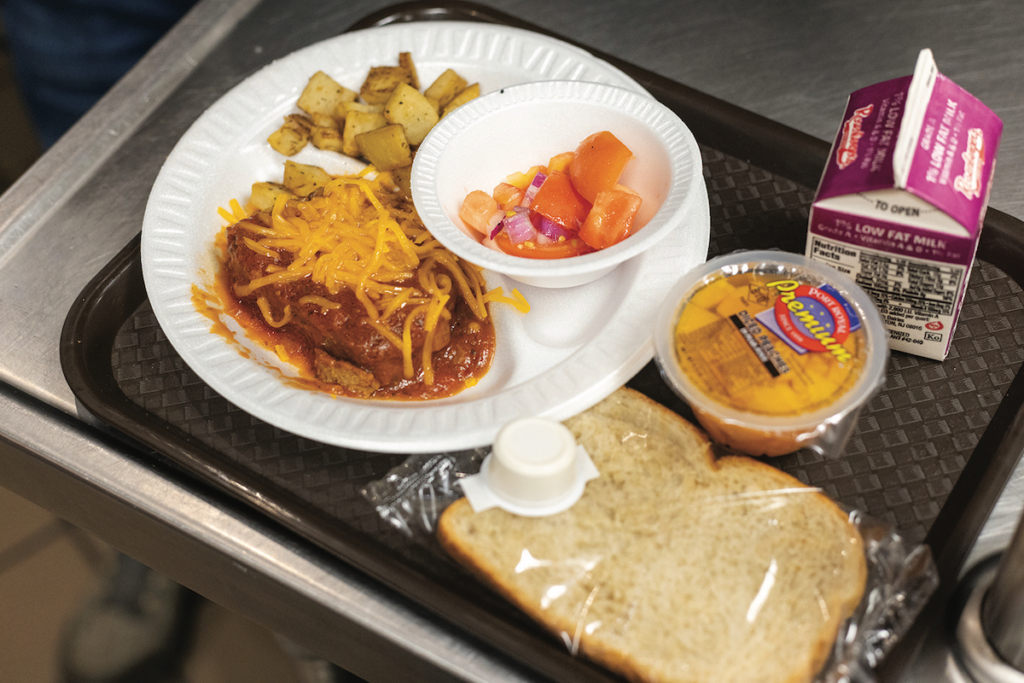
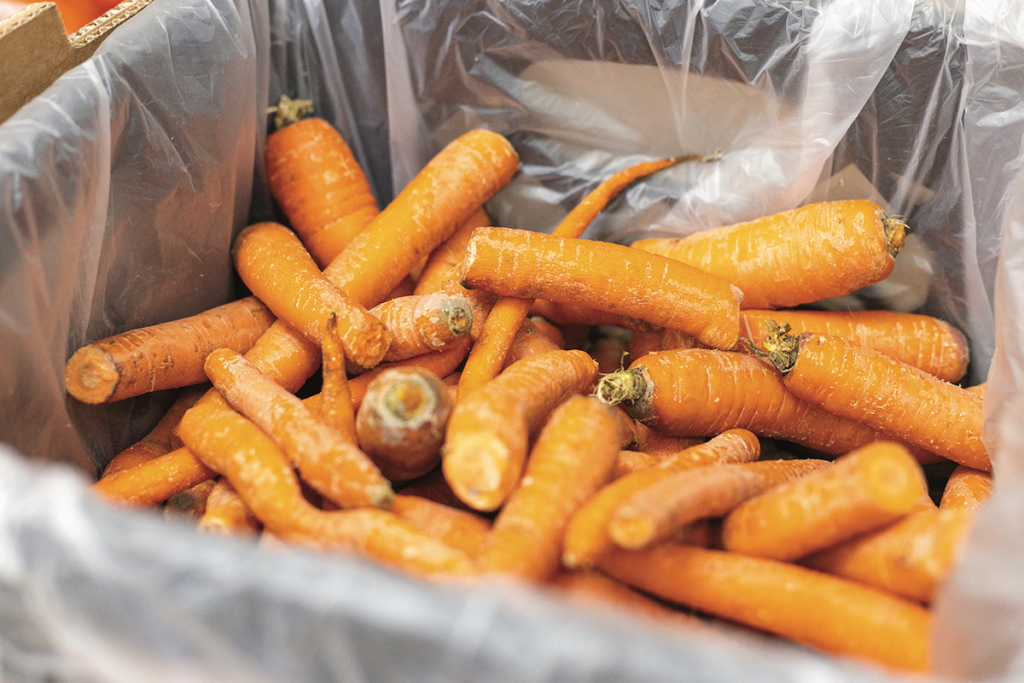
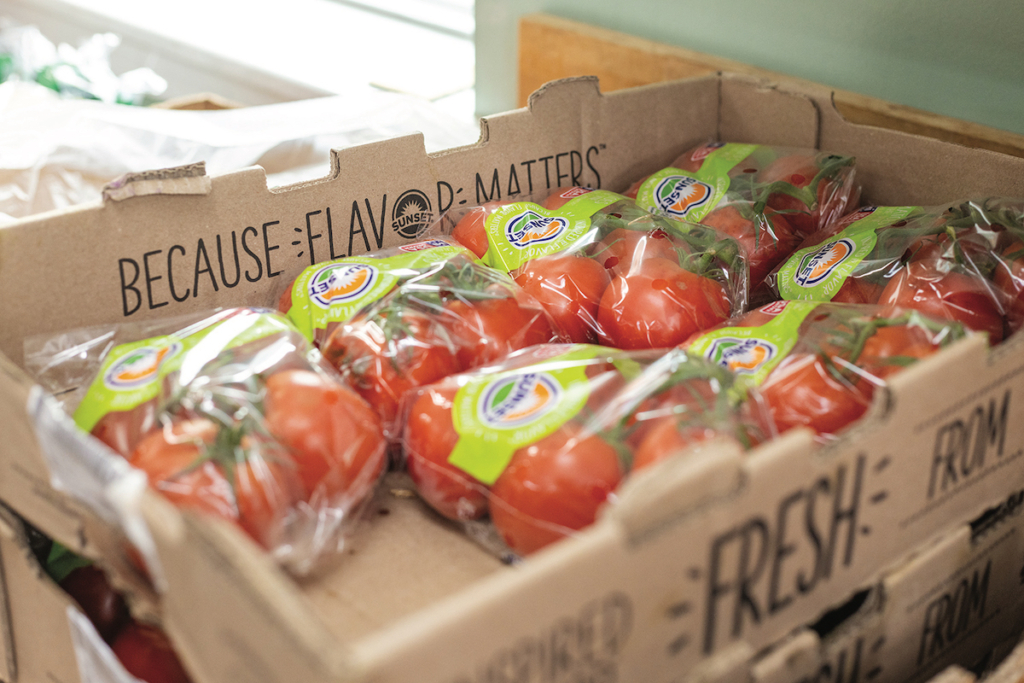
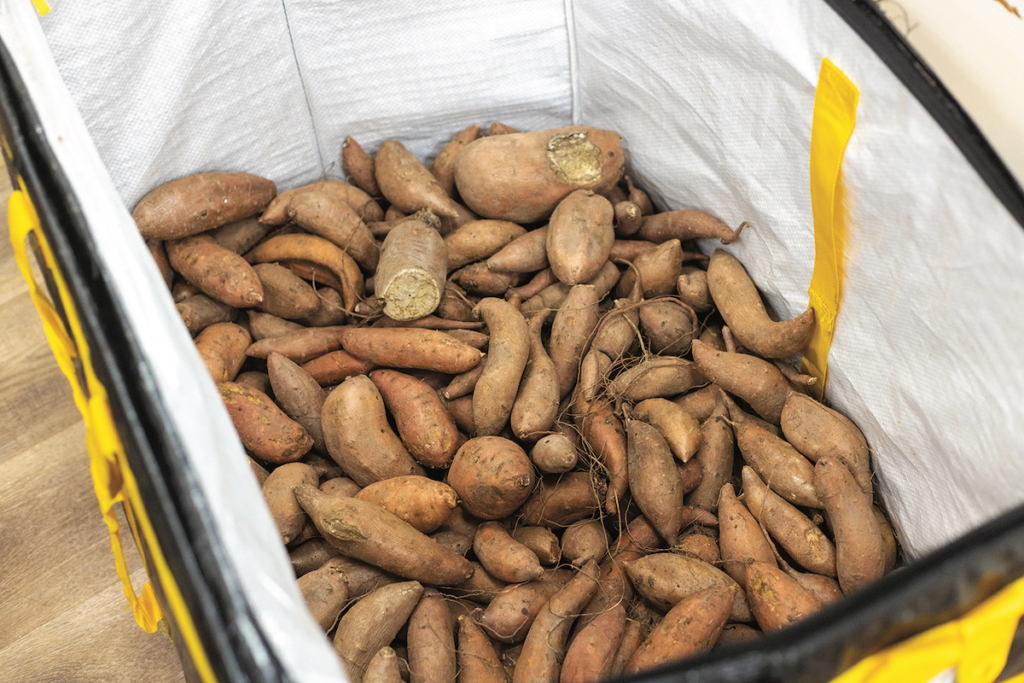
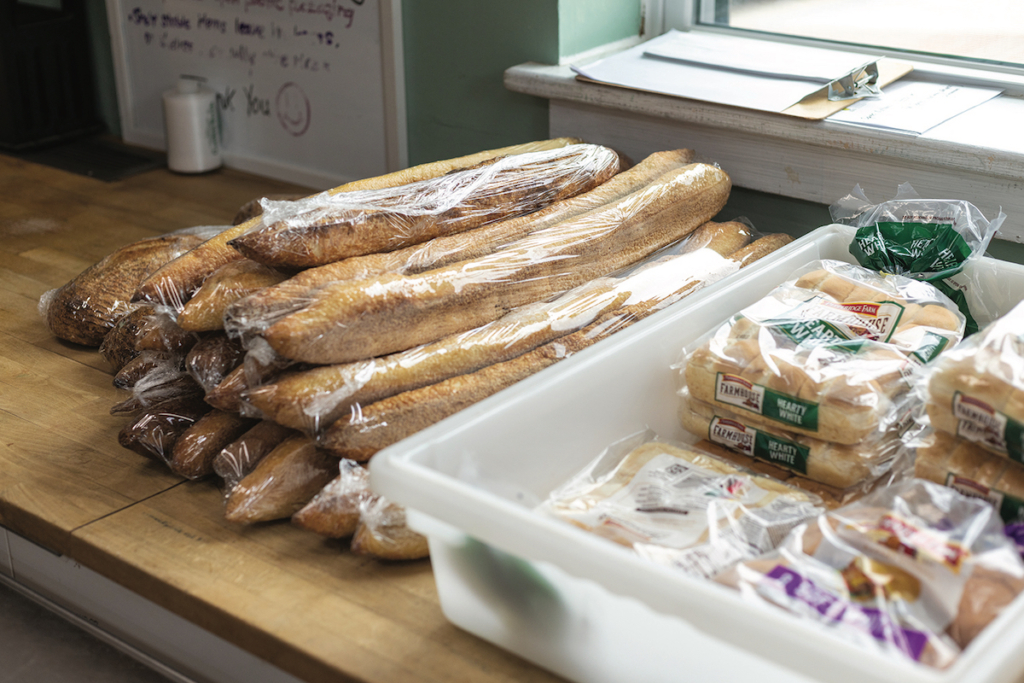
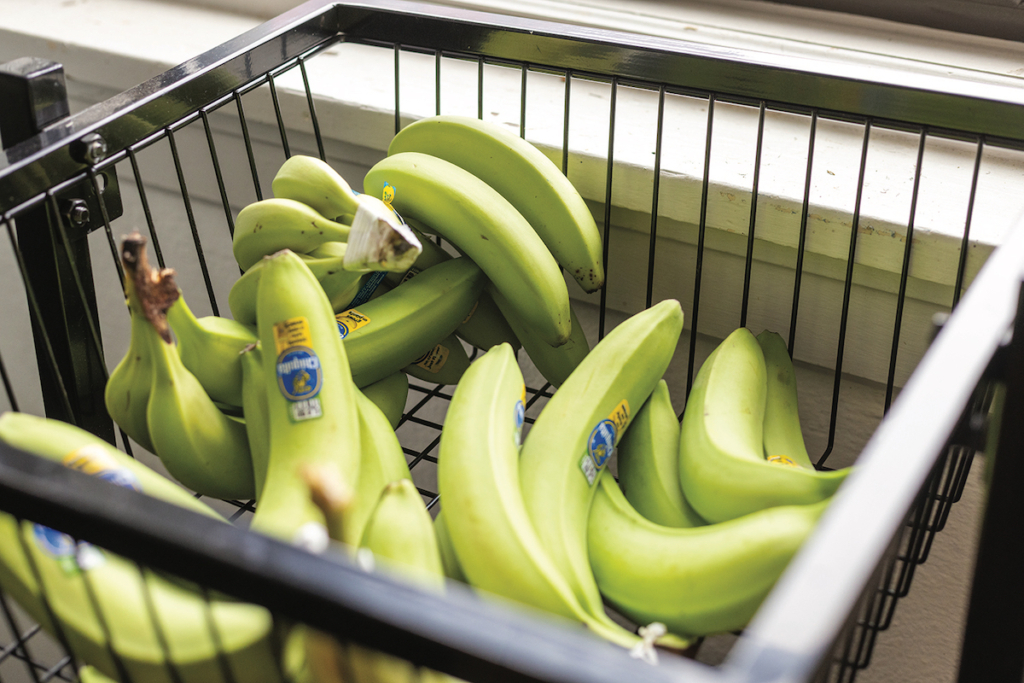
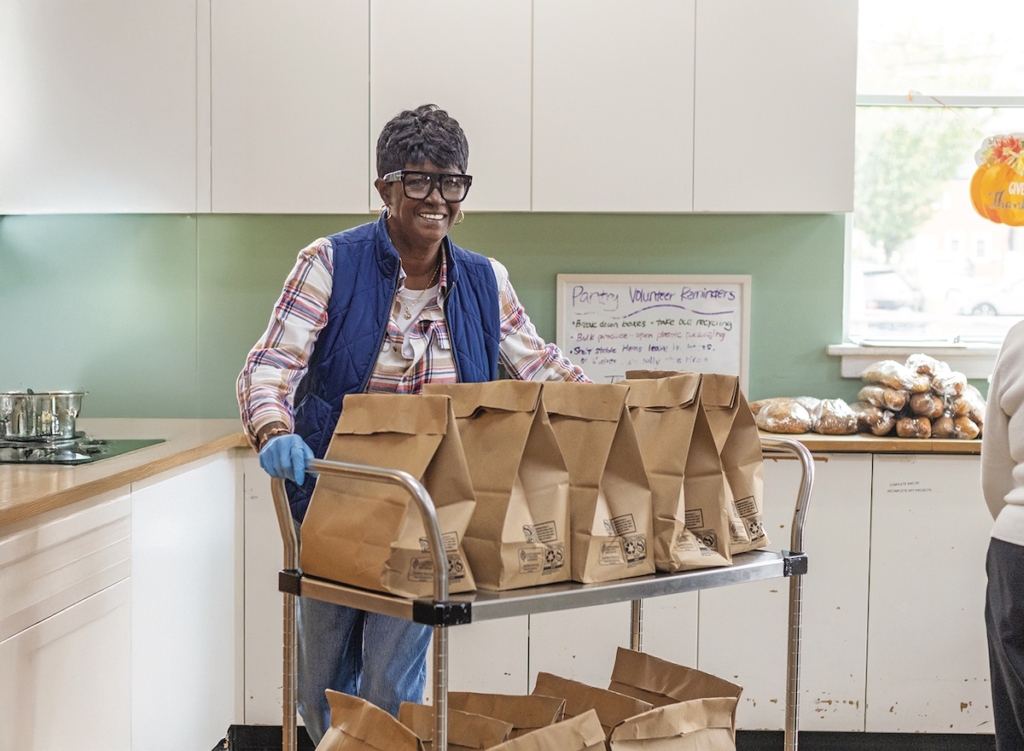
“It may not make sense together, but how we approach our work leads them all together,” says Zaveloff, who came to Lutheran Settlement House eight years ago.
Just as the settlement house welcomed new Americans through its doors more than a century ago, it now welcomes people of all backgrounds, income levels, races, religions, sexualities, genders and creeds – ensuring that everyone has the resources and support they need to thrive.
“We serve 6,200 people a year,” Zaveloff points out. “Our goal is not to all of a sudden grow and help 10,000 people a year … Our goal is, we’re trying to expand the scope and depth of services.
“The people we serve often meet us for longer,” she adds. “Some of our domestic violence survivors have been connected to us for a decade, because sometimes they just need to come back for a little bit of help with Christmas.”
Some come back as part of the settlement’s survivors’ network.
“We train survivors of domestic violence to be advocates and storytellers,” Zaveloff emphasizes. “We pay them for their expertise to teach others and help hopefully prevent (violence from happening) to more people.”
Up the steps into the Lutheran Settlement House is a mural created in 2014 called “Settlement House Roots,” by Eric Okdeh and Michael Reali. It celebrates the house as a 100-plus year-old cornerstone of the Fishtown community, according to a description from the Mural Arts Philadelphia public archive.
The mural features portraits of its oldest long-standing residents and the house’s programs and initiatives. The design began with interviews of Lutheran Settlement House seniors, many of whom are life-long Fishtown residents who grew up with – and were transformed by – the house.
The 600-square-foot mural is accented with highly detailed mosaic portraiture, arranged to lead the viewer’s eye across the piece and into the building. A prominent portrait features an older woman from the Lutheran Settlement House who learned to read through the facility’s literacy program.
Once through the house’s front doors, people are greeted at the front desk. A big part of the place is the food pantry, which is to the left once you walk in.
“We distribute nearly 400,000 pounds of food a year,” Zaveloff estimates. “We serve around 1,500 households through our pantry … You can get a bag of food with all the non-perishable items.”
Philabundance Food Bank is the supplier for all food pantries in Philadelphia. Its food budget was cut by 18% due to federal funding cuts on food, according to Zaveloff.
“We’ve been spending our own money to fill in the gap,” she states. “We don’t want anyone to go hungry. We are making sure that we do what we can to feed our community.”
The Settlement House also provides a seasonal choice pantry on Thursdays between April and October. It’s set up in the back room of the house as a grocery store.
“Before the pandemic, we gave out 100,000 pounds of food,” Zaveloff recalls, noting the pandemic quadrupled the amounts of food the house gave away. “On Thursdays for our choice pantry, we have 200 households come in one day.
“When you look around, we think Fishtown is gentrified and a lot of people are with capacity here, but there’s a lot of people still being left behind in (zip code) 91925, from Fishtown to Kensington.”
About half the people who take advantage of the settlement house pantry are older adults.
“A lot of them are being left behind,” Zaveloff reports. “They used to be able to go to their corner stores for like, a $2 cup of coffee. (That corner store is) now a really fancy restaurant or a fancy coffee shop. It’s getting hard to keep up.”
As you move from the front doors around the corner, the chatter is filled with laughter and joy: it’s where the Center for Older Adults gathers.
“We have about 200 members,” Zaveloff comments. “It’s a place to learn, connect and to make sure people are aging with options … There’s so much life and energy.”
A monitor displays daily activities that include special monthly events like Spanish class, cardio drumming, a murder mystery wine and cheese and an African cooking class.
“We held our senior Olympics recently,” Zaveloff marvels. “It was amazing, with so many fun activities – including chair volleyball and javelin with pool noodles. Our members run from (age) 55 to 95.
“Many have lived in the neighborhood for decades and even came here as kids when their parents were getting services here,” she adds. “Many of them have been connected to the settlement house for most of their life.”
Experts discuss issues at the Center for Older Adults that include dementia and memory loss, diabetes and fall risks. The house’s Heath coach Liam McAnderson, who comes from the tech world, talks about smart phones.
“We get a lot of our (older adult) members who start as volunteers,” Zaveloff says, noting they’re retired and looking for something to do. “We have about 500 volunteers a year. Some come once with a group, and some come every day.”
Two of those volunteers are Thomas Homer and Marge Wible, who were volunteering in the kitchen during a recent lunch. Homer used to live around the corner – and still does, but in a different home. He attended after-school programs including Boy Scouts and boxing at Lutheran Settlement House as a teen.
Older adults who become members realize they can utilize all of the house’s resources.
“They end up sticking around,” Zaveloff notes.
Also inside the house is a multi-purpose room used as food storage with refrigerators. It also hosts older adult classes and the seasonal food pantry on Thursdays.
“Those days we see 200 to 300 households come through,” Zaveloff observes. “People just have to show up.”
Instructions are available in both English and Spanish.
“It’s meant as low barrier, and helps people maintain their dignity,” Zaveloff reports. “There were a lot of people that we saw during the pandemic that came to us for food for the first time. They were ashamed about it.
“We make sure that nobody feels bad about needing a little extra help …”
Every third Thursday of the month, the house hosts a free community dinner that is open to anyone and sponsored by local restaurants who donate food.
On the house’s third floor is a space for the domestic violence program, which has been in place for 50 years or so, but is closed off to the public for privacy reasons. It is one of four city agencies that run the domestic violence hotline.
“We do a lot of counseling with survivors,” Zaveloff says, including, she adds, children. “We work with teens to prevent domestic violence. We teach about healthy relationships.”
While there is currently a year-long wait for child counseling from three therapists on staff, the house is training other providers so kids can get help more quickly than a year.
“We can’t hire our way out of this,” Zaveloff acknowledges. “We would need 20 therapists on staff … That’s not sustainable for us.”
If Lutheran Settlement House can’t help someone at its site, there are more than 70 partner agencies that can.
The house also runs its own shelter – the Jane Addams Place shelter – in North Philly, home to up to 25 families who get comprehensive case-management services, trauma therapy and nutritious meals.
Children can play safely in the shelter’s courtyard, gym and Bright Spaces activity room and they use its academic support and its computer lab. The average length of stay is six months.
“When they leave the shelter, we want to reduce homelessness from happening again” Zaveloff argues. “We know for a lot of the families in our shelter, they’ve experienced homelessness at least once before, as many as two to three times.
“Sometimes it can be a really small thing that leads back to homelessness.”
Lutheran Settlement House does a lot with community, compassion and change at the forefront.
“I absolutely love it here,” Zaveloff enthuses. “It’s a really amazing culture among the staff and I really appreciate our approach to the work and how we treat the people who come through the doors.
“We really put dignity above all else and kindness and passion.” — The Hook
Lutheran Settlement House
1340 Frankford Ave.,
Philadelphia, PA 19125.
Phone: (215) 426-8610
24/7 Hotline: (866) 723-3014.
lutheransettlement.org

